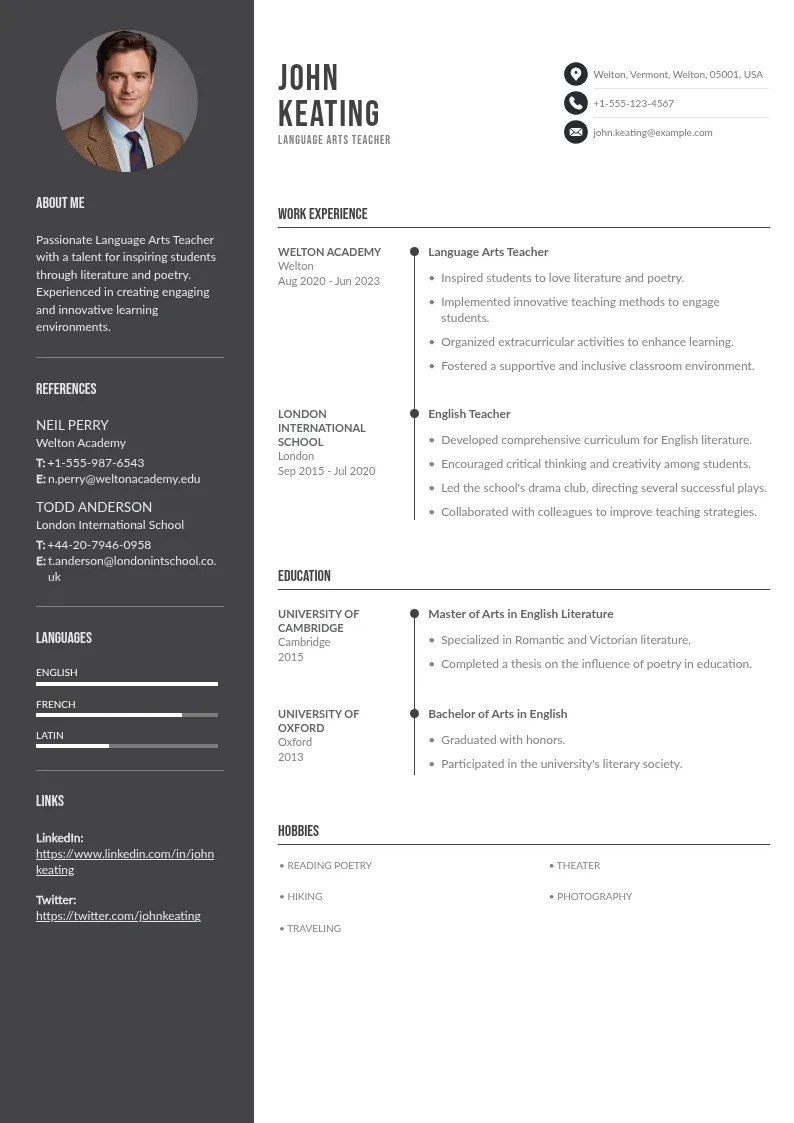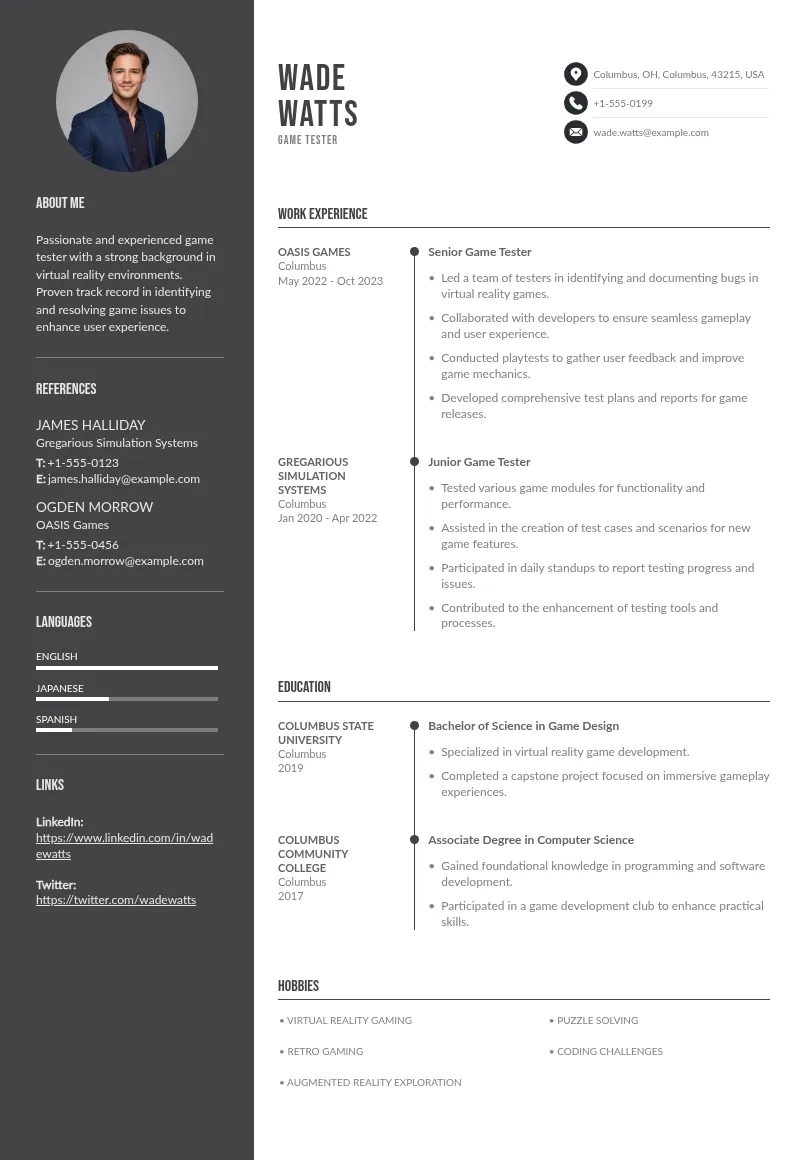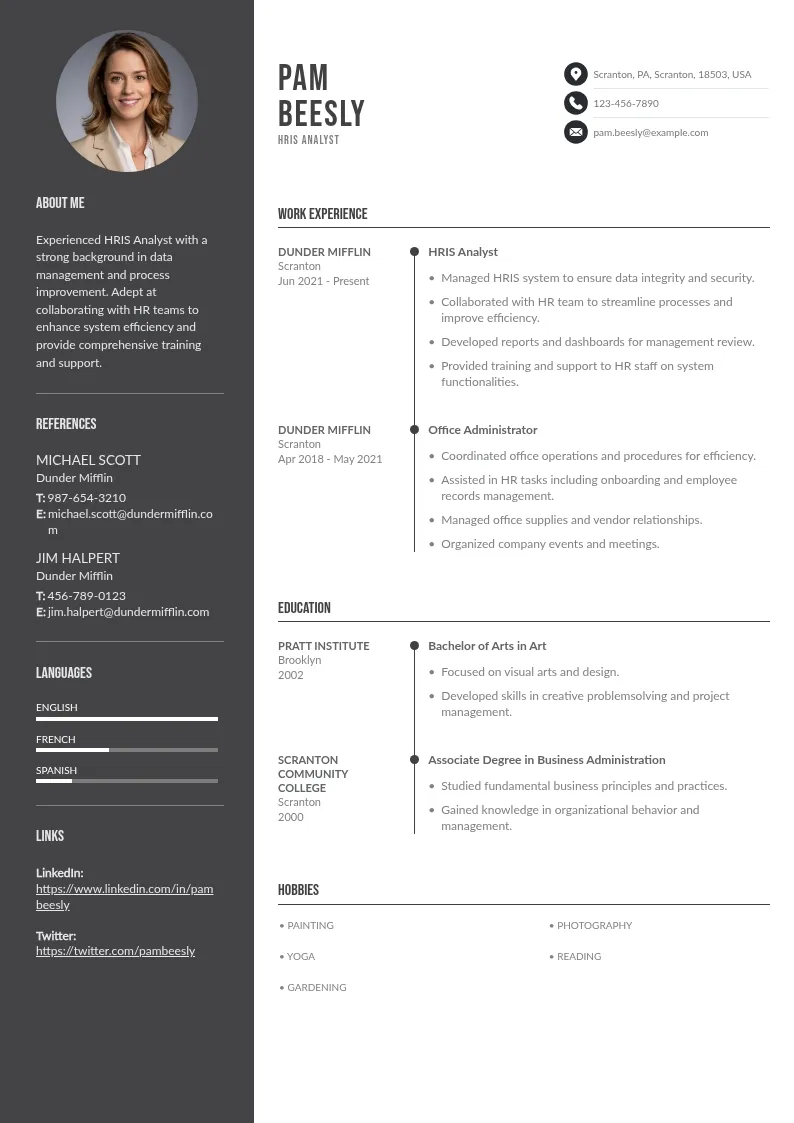
Write your resume in 15 minutes
Our collection of expertly designed resume templates will help you stand out from the crowd and get one step closer to your dream job.


In this guide, we explore those fields for colorblind people. We also offer great practical career advice for navigating the world of work. With colorblindness. It's essential reading for those affected. And really anyone interested in how this condition intersects with different career choices.
Here are some points we discuss in this article:
- Understanding Color Vision Deficiency
- Careers Affected by Colour Vision Deficiency
- The Best Careers for People with Colour Blindness
- Frequently Asked Questions About Careers for Colour Blind Individuals
Understanding Color Vision Deficiency
Color vision deficiency, commonly known as colorblindness, affects how individuals perceive colors. Contrary to the term "blindness." Most people with this condition do not see colors entirely. But rather experience a limited spectrum. Or altered hues.
Color blindness is typically diagnosed through a color vision test. Like the Ishihara color vision test. It uses colored plates with numbers. Or patterns embedded in them. Other tests, such as the Farnsworth-Munsell 100 Hue Test, really provide a more detailed assessment of color perception. They identify colorblind warning signals correctly.
There is no cure for colorblind people. But various tools and strategies can definitely aid in daily activities such as identifying traffic lights for a colorblind person. Special glasses and apps designed to enhance color differentiation can be really useful. Additionally, learning to rely on other senses.

Careers Affected by Colour Vision Deficiency
Understanding which careers are affected by color blindness. And exploring strategies for adaptation can certainly help a colorblind person navigate their professional paths effectively.
Careers that Require Normal Color Vision
Certain professions really heavily rely on the ability to perceive. And distinguish colors accurately. These roles often require really precise color recognition. And color blindness can pose significant challenges:
Pilots and Air Traffic Controllers:
These roles demand the ability to quickly interpret color-coded signals. And displays for safe navigation and coordination. Distinguishing between different colored lights. As well as indicators is crucial.
Graphic Designer and Artists:
Professionals in these fields work with a broad spectrum of colors to create visually appealing designs. And create perfect color combinations. Color accuracy is vital for matching client specifications. And for producing truly effective visual communications.
Electricians and Technicians:
Tasks often involve reading color coded wires and wiring. And electrical components. Accurate color perception is necessary to avoid mistakes with color coded wires.
Medical Professionals:
Certain roles, such as radiologists. Or pathologists, may require the ability to distinguish subtle color variations in medical images. Or samples to make accurate diagnoses.
Fashion Designers and Merchandisers:
Seeing colors accurately plays a key role in selecting clothes. As well as coordinating and presenting clothing. And accessories. Fashion designer professionals need to match colors really effectively. To meet client preferences.

Adapting to Color Vision Deficiency in the Workplace
- Assistive Technologies: Use specialized tools like color-identifying apps. These help with distinguishing colors accurately. Glasses and contact lenses designed to enhance color vision is also really useful.
- Alternative Techniques: Rely on other visual cues. And not defective color vision. Such as patterns and shapes.
- Clear Communication: Share any color-related challenges with colleagues. And supervisors. This helps find solutions. And ensures accurate task completion.
- Training and Support: Look for training resources on managing color blindness. They offer valuable strategies. And tips.
- Choosing the Right Role: Explore careers that don’t rely really heavily on color perception.
The Best Careers for People with Colour Blindness
1. Technology Specialist
Tech roles often focus on logic. And problem-solving and innovation. Positions like software developer. Or IT support rely on analytical skills. Rather than a very broad spectrum color differentiation. Color blindness has little impact on coding. Or troubleshooting tasks.
2. Writer or Editor
In writing and editing, the emphasis is on language. As well as structure and clarity. These roles require strong communication skills. And attention to detail. Not colored sight and perception.
3. Engineer
The engineering industry and fields, including civil. And mechanical and software engineering jobs, prioritize technical skills. And problem-solving. While some engineering tasks may involve color-coded schematics. Many aspects focus on design and functionality. Which can be managed with alternative techniques.
4. Research Scientist
Scientists in fields like biology. And chemistry and physics often work with data. And experiments where color is not the primary focus. Research involves analysis. As well as experimentation and critical thinking.
5. Technical Support Specialist
Technical support roles involve helping users with technical issues. These positions require strong problem-solving skills. And customer service abilities. Color vision is not a major factor in troubleshooting. And guiding users.

6. Musician or Audio Engineer
Music and audio roles focus on sound. Not color. Musicians and audio engineers work with tones. As well as with rhythms and acoustics. Color blindness has no impact.
7. Mathematician or Statistician
Mathematics and statistics involve working with numbers. And patterns and data analysis. These roles emphasize logical reasoning. As well as numerical skills.
8. Counselor, Therapist, Social Workers
Counseling and therapy focus on communication. And empathy and support. Professionals in these fields help clients work through emotional aspects. And psychological challenges.
9. Historian or Archivist
Historians and archivists work with documents. As well as research and historical records. Their tasks focus on content. And context rather than color. Color blindness does not impact their skill to analyze.
10. Business Analyst
Business analysts evaluate data. And provide insights to have a profound influence on improving business operations. The role involves analyzing trends. And making recommendations based on data.

The Final Word
Being color blind doesn’t define your professional potential. Many careers value skills. Beyond color perception. And with the right strategies and tools, colorblind people can excel. In diverse fields! Explore opportunities that align with your abilities. And remember that success is driven by talent and determination. Not just seeing color.

















